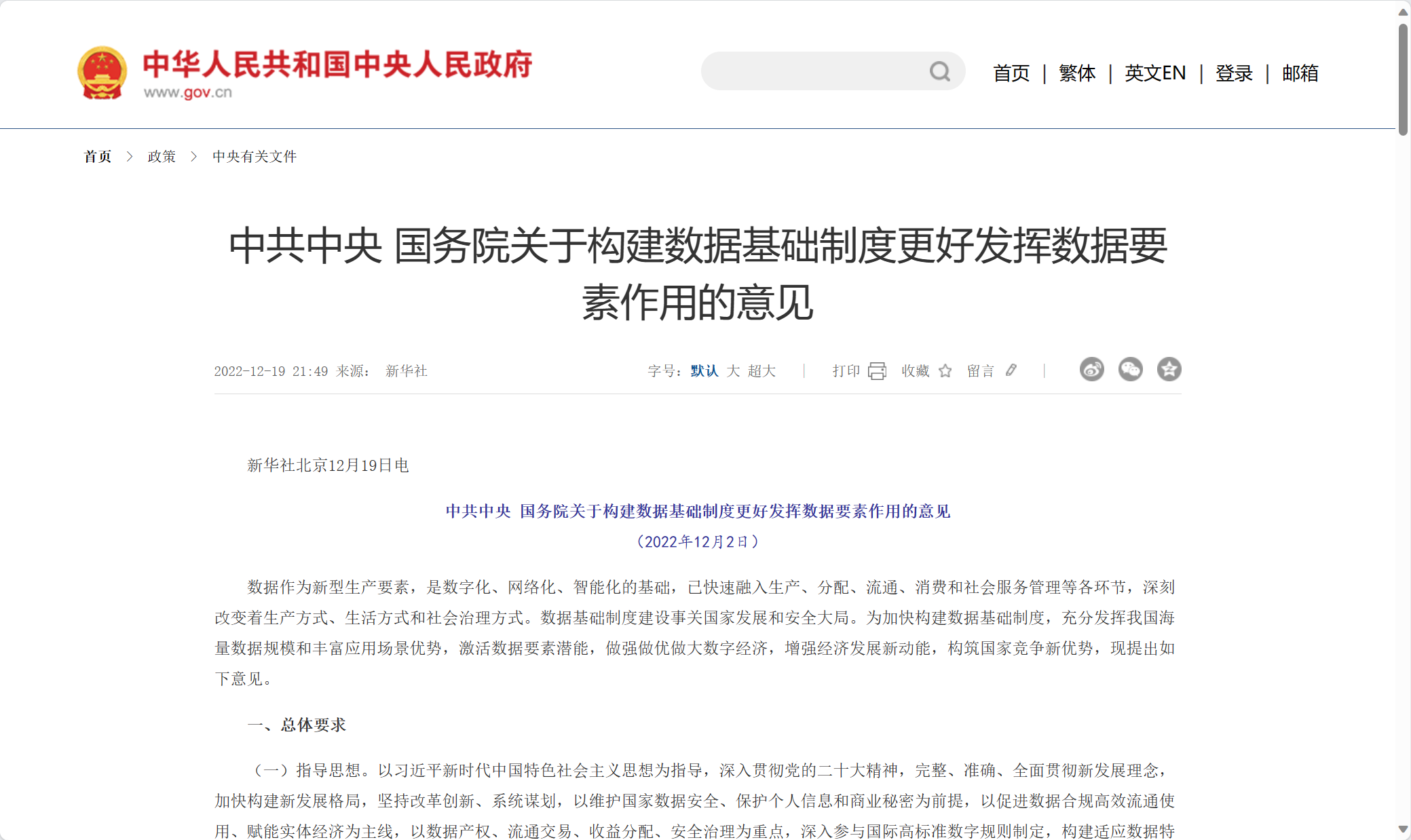
As an essential underlying asset in digital transformation, data has become increasingly important to the digital transformation of financial institutions. To transform raw data into good data assets that are visible, usable and manageable, data governance is a topic that can never be avoided. How financial institutions can give full play to the advantages of massive data scale and rich application scenarios, activate the potential of data elements, and empower the high-quality development of the digital economy is being widely discussed in the industry.
Gan Yutao, executive director of Beijing Xinke Institute of Financial Development, pointed out: "If the digital transformation of financial institutions is seen as the 'pillar and beam' of the digital version, then the value of data elements and the ability of data governance is the key to help them 'build up a strong potential'. The key to this is to build up a strong foundation. If the digital economy is compared to a building, data is the bricks used to build the building, and if the building is to be built high and stable, the data 'bricks' must have a firm foundation and strong load-bearing capacity."
I. Current data governance and data quality are already mandatory questions for financial institutions in regulatory data-type inspections
According to the April 2023, KPMG released ""Supervision" Listen to the Meaning: Analysis of Regulatory Data Penalties and Insight Recommendations for the Financial Sector in the First Quarter of 2023", in the first quarter of 2023, the People's Bank of China and the CBRC issued a total of 384 data fines to banks, insurance companies, securities companies and other financial institutions, with fines amounting to 645 million yuan, with eight large fines exceeding 10 million yuan. Compared with the fourth quarter of 2022, the number of fines rose by 73.8% and the amount of fines rose by more than three times compared to the fourth quarter of 2022.
After the advancement of the preliminary work, most of the institutions have basically established the organizational structure of data governance, but there are still some institutions have not yet reached sufficient consensus among the various levels of internal organizations, which is either the general reason why financial institutions are involved in more data-based fines.
In this regard, Gan Yutao believes: "This is like a good product manager can not wake up the programmer who does not act, and a good programmer can not 'drive' the product without innovation. Data governance in financial institutions needs to be taken seriously and fully agreed from top to bottom."
"Some institutions' business staff are not yet fully aware of the importance of data governance, the low level of participation in each branch, the many source systems for detailed data, and the relevant work is often unilaterally undertaken by the data governance lead department or the technology department, leading to poor overall governance results." Huang Yiqing, financial data governance expert at Soxindar Holdings, said, "Some institutions often have data needs for a project after urgently pulling data for the project, only to find out later that some processes are not standardized when doing data governance, and at this time the development team may not be able to rectify in time for various reasons, and the data governance effect will be very poor in the long run. "
2. Stimulate the potential of data elements fundamentally lies in the establishment of a sound property rights and governance system of data elements
In the past few years, the regulatory layer has issued a number of policies and guidelines to promote the continuous completion of data element capacity building and data governance system in the financial sector. For example, in 2018, the CBIRC issued the "Guidelines on Data Governance for Banking Financial Institutions" to provide clear guidance on data governance structure, data management, data quality control and data value realisation, etc.; in 2022, the CBIRC issued the "Guidance on Digital Transformation of the Banking and Insurance Industry" mentioning data capacity building and a sound data governance system, etc.
According to Huang Yiqing, "In the case of banks, for example, the general difficulty of their data governance lies in the four types of pain points of unknowable, uncontrollable, undesirable and unlinkable data prevailing in the industry. For example, there are serious data silos within institutions, with different business departments' databases each 'governing' and the prevalence of just doing data collection and statistics into a KPI system, but in reality there is no effective association between data and data."
Su Xiaorui, a senior consultant in the financial industry at Econ Analytics, said that for financial institutions the focus will be on establishing data-centric decision-making mechanisms and business models, accelerating the application of privacy computing technology and strengthening whole-process data security. In the future, market institutions are expected to work together with regulators to form a strong systematic guarantee for exploring the safe and efficient application of data elements.
Wang Pengbo, a senior analyst in the financial industry at Broadcom Consulting, concluded to reporters that in practice, the data chain of institutions is long, from production to final use, and will go through multiple links in the middle. Institutions should promote and implement data governance from the perspective of asset management, and focus on data security and privacy protection in order to achieve the leap from resources to assets. In this regard, it is necessary to continuously improve the standard system of data governance and management, to plan holistically in terms of data architecture, data quality, data security and data application, to break the original business "fence", and to achieve both data and business in "breaking" and "standing". In the "break" and "stand" to achieve the dual drive of data and business.